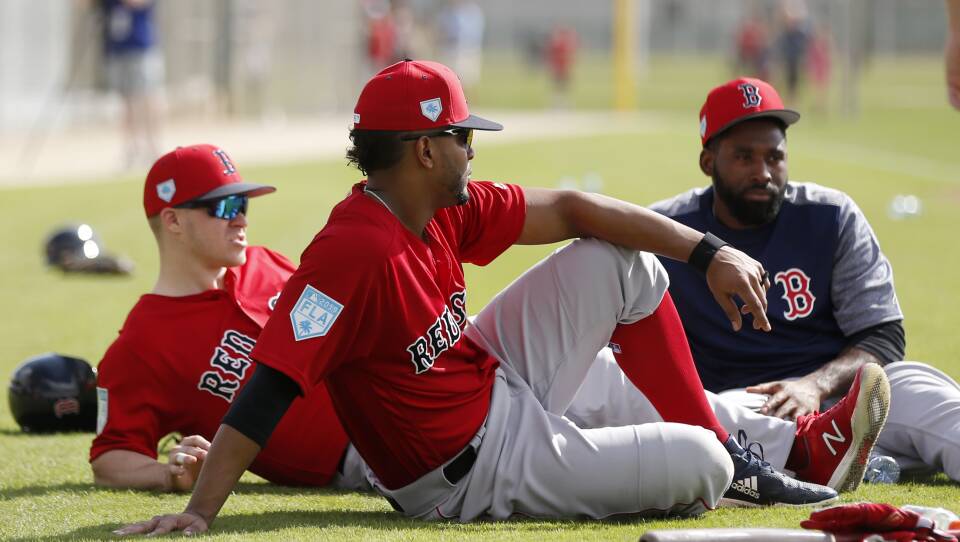Alex Cora's career as manager of the Boston Red Sox ended Tuesday night. The Sox and Cora parted ways amid allegations that he played a key role in developing a sign stealing scheme while serving as bench coach of the Houston Astros during the 2017 season, when the Astros won the World Series. On top of that, Cora and the Red Sox are also under investigation for sign stealing during the Sox 2018 season, when they won the World Series.
Jason Turbow is the author of the book The Baseball Codes, about the unwritten rules of the game, and he writes about baseball at thebaseballcodes.com . He spoke with WGBH All Things Considered anchor Arun Rath on Wednesday. This transcript has been edited for clarity.
Arun Rath: For people who might not be familiar with baseball, could you explain exactly what sign stealing is?
Jason Turbow: Let's start with what signs are and why they're necessary. The signs we're hearing about so much these days that are being stolen are primarily between the pitcher and catcher. A catcher puts down one finger for fastball, two fingers for curve ball, he'll wiggle four fingers for change-up. The pitcher will see what pitch is called for, deliver it appropriately and everybody goes home happy. The trouble comes in when there is a runner at second base who can look straight past the pitcher and at the catcher, easily see what signs are being put down, and through his own system of signs, signal the hitter as to what type of pitch is about to be thrown.
Rath: In terms of stealing signs, just looking at them, stealing the signs with the naked eye, that's okay under baseball's rules.
Turbow: That is absolutely correct. Not only is it legal, but it's accepted. This is to a degree gamesmanship. Every team has guys who do this.
Rath: So where does it cross over into being illegal, or against the rules?
Turbow: When these signs are stolen via aid of technology. We've gotten to a new level of subterfuge now, starting when baseball implemented its instant replay review for umpires in 2014. They have closed circuit video feeds and monitors all over the stadium that are intended to review plays for safe and out calls and the like. But teams have figured out ways to game the system, particularly the Astros in 2017, who stationed a monitor right behind their dugout so they could actually look in very closely at the catcher's signs on a feed that they themselves controlled. And this, according to everybody paying attention to it now, is beyond the pale.
Rath: How massive a problem is it? We're talking about the Red Sox and the Astros. They're the only two teams that come under formal investigation so far. The Astros fired their manager and general manager this week. But we've heard all sorts of rumors and accusations about lots of teams using this kind of technology. How prevalent is it?
Turbow: That's the $24,000 question. Lots of rumors are out there and rumors have been out there for decades, since long before the closed circuit system came in. It's kind of like steroids, in my mind. The players who are clean are pretty resentful of the players who weren't clean. And similarly, there are teams who do not have this system and are suffering as a result. So we're starting to hear reports of various clubs, none of which have been totally substantiated yet beyond the Astros and the Red Sox. But believe me, it's coming.
Rath: Could you act like a baseball ethicist for us? In terms of breaking the rules, compared to something like steroids, how bad is this?
Turbow: It definitely impugns the integrity of the game. Giving a team an unfair advantage that the other team doesn't have, I think that's really what sets it apart, and I think we're just scratching the surface of this right now.
Rath: And how much do you think this will stick to these individuals? How bad is this for Alex Cora? Will he have a hard time finding a new job?
Turbow: Well, we haven't heard the end of the Alex Cora investigation yet. There may be new details that come out. As of right now, I think none of this is a scarlet letter for them. I think baseball is a very forgiving sport, if people come clean and move on in the right way.
Rath: In terms of the effect this might have on the game, this might be baseball's biggest scandal since steroids. Do you think this leads to changes in the game?
Turbow: I mean, not in the way the game is played on the field, per se. There's definitely going to be more monitoring of video feeds. They're talking about next level, 2.0 communication between catchers and pitchers. But beyond that, I think baseball is going to be baseball, now and forever more.
Rath: Do you think going forward - I hate to keep using steroids as a reference point - but when you think about that as a scandal that didn't just affect the game, it hurt baseball. Do you think that this current scandal will leave a bad enough taste in the mouth of fans to hurt the game?
Turbow: I don't think so. With steroids, it was people disbelieving that players could achieve their feats otherwise. I don't think anyone thinks that this Astros team was not good enough to win a World Series. You can make an argument that they were aided along that path, for sure. But this was a championship level club. It affected things in a substantial way, but not such an overt way as steroids.
Correction: A previous version of this story incorrectly spelled Jason Turbow's last name.






